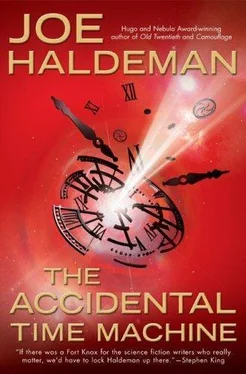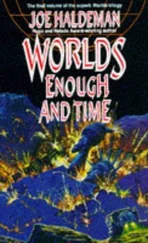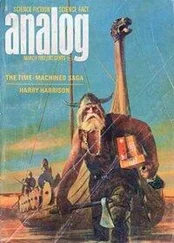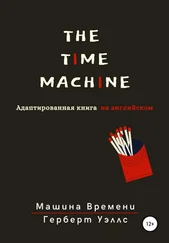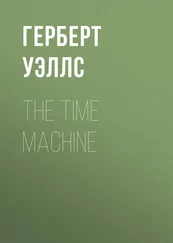He was carrying his notebook, so he went on down to the MIT main library, plugged in, and started rereading the notes for his dissertation on patterns of local asymmetries in gravity wave induction associated with two recent supernovae.
His data stank. The inductions were so weak they were almost lost in the background noise. Saying they actually existed was as much an act of faith as one of observation.
It felt like the cable on his personal elevator had snapped. The set of mathematical models that could contain his wobbly data was so large as to make any one solution actually indefensible.
At some level, he’d known that for a long time. He’d been hiding the truth from himself in the complexity and false elegance of the argument. Coming to it fresh after months away made it clear that he’d been building a house of cards.
He closed the notebook with a whispered expletive that made one person look up and two others lean forward to concentrate on their screens.
There was no way to refine the data or hope for technological advances that would reduce the blobbiness of it. The gravity wave that a supernova produced passed through the solar system once and was gone. It was not too bright to bet your career on a set of evanescent and unrepeatable data.
He could still do something with it, if only an analysis of why this approach was wrong. He could visualize trying to defend something that feeble in front of a thesis committee. The death of a thousand cutting remarks.
He wouldn’t need it, though. Not as long as the machine and Herman came back tonight.
He saved a subway token and walked through the stinging wind to Central Square, where thirty dollars got him a dish of nuts and a nonalcoholic beer at a place where pretty naked women danced almost close enough to touch, Middle Eastern music whining and twanging. It disturbed him that their beauty and sexuality couldn’t penetrate his dark mood. That girl’s undulating waist a perfect hyperboloid of one sheet. Another one describing oscillating conic sections as she swung around a pole. The third one’s posture reminding him that, topologically, we are all just a coiling cylinder connecting two holes, with certain elaborations on the outside of the cylinder.
He stayed only a half hour. On his way to the T he optimistically bought a half bottle of decent champagne. For celebration or consolation.
When he got home, he put it in the fridge and opened a can of minestrone for dinner. While it heated, he went to check the e-mail.
There was a note from Kara, with only a question mark in the subject line. He opened it eagerly:
Dear Matt—I’m sorry you lost your position with Prof. Marsh, and hope I didn’t accidentally cause that to happen. I described that photon project to Strom, and he went to talk to Prof. Marsh about it, and I guess he offered Strom your job. He likes Marsh and always got As from him.
I’m sorry. Kara.
Well, wasn’t that just a kick in the balls. Actually, it was kind of a relief to be able to think he didn’t lose the job purely out of incompetence, or from the old bastard reading his mind.
He allowed himself a wicked moment of imagining how Marsh would feel when he published his time-machine results.
Besides, it wasn’t just Marsh, technically, who had given Strom those As. It was Matt himself who had graded the papers!
The minestrone started boiling. He took it off the stove and, after it had cooled, ate it straight out of the pot, staying out of range of the camera and posterity.
At seven, he sat down at the couch with a book, a biography of Isaac Newton. After a couple of pages, he stopped reading and just stared at the board where Herman, history’s first chrononaut, was going to appear. He was about a minute early. At 8:15:03 the whole apparatus appeared, with a slight scraping sound.
It had moved. The chassis of the machine stood on the woodscrews that had secured it to the board, like four little metal feet. They were a couple of millimeters from the drill holes. He looked into the pan and Herman looked back, apparently unaffected by his sudden fame.
Why hadn’t the machine moved before? Or did it just move so little that the screws nudged their way back into the holes?
He knew he hadn’t touched it. Could the house have shifted that much in three days? Unlikely.
He belatedly looked at the clock. It said 12:01:21. The machine had only been gone about a minute, in its own frame of reference.
He checked the water in the jug. No evaporation. Herman apparently hadn’t eaten or drunk anything, or pooped.
He found an old engineering ruler that he hadn’t used since his sophomore year—he’d taken an engineering drawing course and switched his major from engineering to physics—and he set the millimeter end down next to one of the woodscrew feet. He took extreme close-ups from three angles, which he could later analyze for the precise distance and direction moved. Next time, it might move centimeters. Or across the room.
Or into another state.
He’d have to affix a note—“If found, please return to …”—with a substantial reward. Share the Nobel Prize.
Or wire the machine to a big metal box and go along with it.
He took the cell off the machine and hooked its I/O into his notebook, and went back to T = 0. It showed his clock radio at 11:59. Off camera, a tinny version of his voice said, “This is the sixth iteration. We expect it to be gone for about three days and eight hours.” The clock radio went to 12:00 and disappeared.
The screen went gray for about a minute, then the clock radio reappeared, showing 8:15. He could time it precisely later. He ran it back and scrutinized it with the screen brightness turned all the way up. It seemed to be a minute of uniform gray.
But three days had passed, and three nights. That there was no alternation between dark and light meant that it wasn’t getting illumination from the ambient surround.
Where had it gone?
That Herman was still alive indicated that it hadn’t gone into outer space. The jug of water hadn’t boiled away or turned to a block of ice.
He scientifically dipped a finger into the jug. Room temperature, give or take a couple of degrees.
The next time, he ought to include an environmental monitor, something that recorded temperature and pressure. L.L.Bean probably had one.
Money, though. He could probably borrow one from MIT, a midnight requisition. Bring it back in a month.
Forty days, actually. How long would it seem to him, in his metal box?
There was no way to interrogate Herman about the subjective length of his voyage. That he hadn’t eaten indicated it was a short time. Or it could have been three days of turtle terror—he couldn’t eat because he was too upset.
Probably not. If he’d been upset, he would have been locked up tight in his shell, the way he was after the trip from the pet shop. Matt had looked in the pan only a few seconds after it reappeared, and Herman seemed unruffled. Though it was hard to tell. He might be having a profound existential crisis.
Matt looked into the pan again. Herman was gnawing on a pellet of Baby Reptile Chow.
He went for a beer and remembered the champagne. Opened it, poured a jelly glass full, and sat down to think.
If everything was simple and linear, then the next time, the machine would move about twelve millimeters, half an inch, and the gray period would be about twelve minutes long. But it would be dangerous to assume linearity.
The safest course, if he were going to put himself in that metal box, would be to take along enough food and water for forty days. How much would that be? He typed the question into his notebook.
The consensus seemed to be about a gallon of water a day, which seemed like a lot if you weren’t staggering across a desert. Eight of those big five-gallon jugs. Then one thousand five hundred calories of food a day, which would be easier. A couple of boxes of energy bars. A bottle of bourbon to keep from going insane. Maybe two. And a really good book.
Читать дальше
